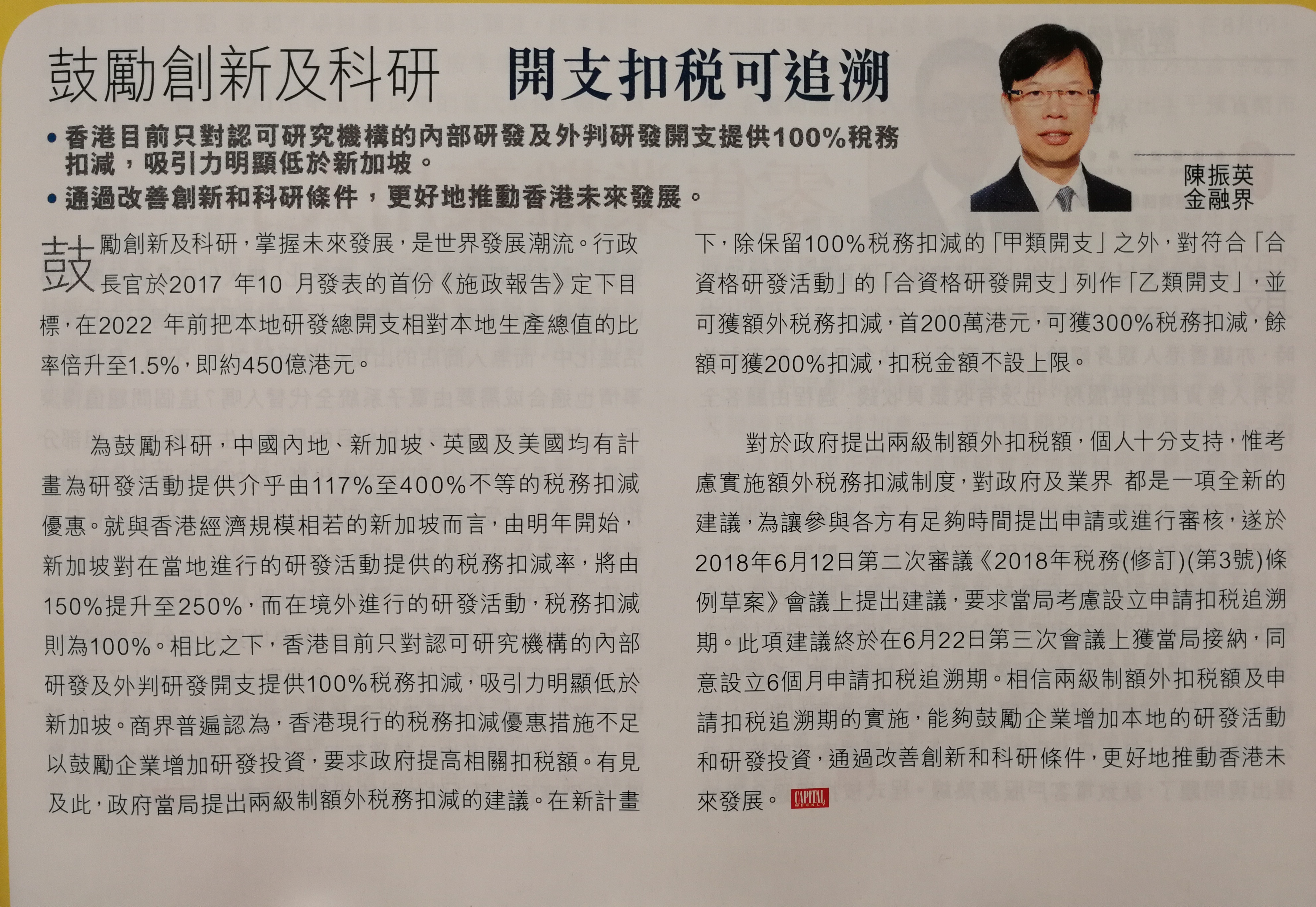
Translated version of Capital Weekly Legislative Councillor’s Column
Promote innovation and technological research introduce retrospective effect for R&D tax deduction
Promoting innovation and technological research, and mastering future developments are trends of global development. In her first Policy Address of October 2017, the Chief Executive has set a goal to double the Gross Domestic Expenditure on Research and Development (R&D) as a percentage of the Gross Domestic Product to 1.5 %, equivalent to about HK$45 billion, by 2022.
In fostering technological research, Mainland China, Singapore, the United Kingdom and the United States have plans to provide tax incentives on R&D activities ranging from 117% to 400% deduction. For Singapore, which has a similar economy size as Hong Kong, from 2019 onwards, the tax deduction rate for domestic R&D activities will be increased from 150% to 250%, while the deduction rate for overseas R&D activities will be 100%. As compared to Singapore, the current tax incentives in Hong Kong on R&D, providing only 100% tax deduction for expenditure on in-house and out-sourced R&D to approved research institutes, are apparently less attractive. The business sector generally considers the current tax incentives is not good enough to encourage enterprises to invest more on R&D and therefore urges the Administration to provide a higher rate of tax deduction. Against this backdrop, the Government proposed a two-tiered enhanced deduction regime. Under the new regime, R&D expenditures which qualify for 100% deduction under “Type A expenditures” will remain. The “qualifying expenditures” incurred by enterprises in “qualifying R&D activities” will be classified as “Type B expenditures”, which will enjoy an enhanced tax deduction of 300% for the first $2 million and 200% for the remaining amount. There is no cap on the amount of enhanced tax deduction.
While I support the Government’s proposal for a two-tiered enhanced deduction system, it is necessary to provide adequate time for all parties concerned to submit applications or carry out vetting procedures as the same after all is a novel proposal to the Government as well as to the industry. I raised this issue at the second meeting held on 12 June 2018 in respect of the Bills Committee on the Inland Revenue (Amendment) (No. 3) Bill 2018 (Bills Committee), and urged the Government to consider providing a retrospective period for claims in tax deduction. At the third meeting of the Bills Committee on 22 June 2018, the Government accepted my proposal and agreed to provide for a 6-month retrospective period for claims in tax deduction. I believe the implementation of the two-tiered enhanced deduction and the retrospective period for claims will encourage enterprises to increase local R&D activities and investment in R&D. By improving the conditions for innovation and technological research, it could definitely better facilitate the future development of Hong Kong.
